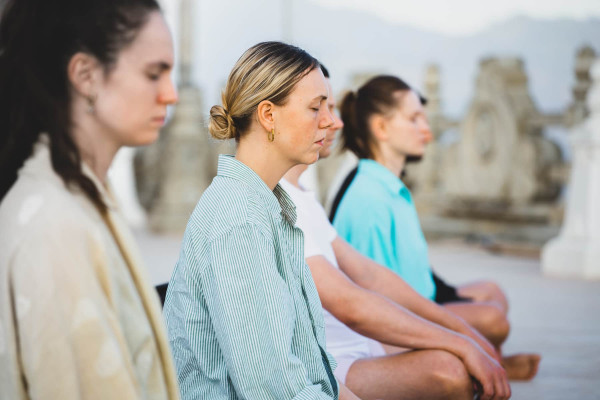Mindfulness vs Relaxation | What’s the Real Difference?
23 June 2025
Mindfulness vs Relaxation: Why the Difference Matters for Your Wellbeing
I am madly enthusiastic about mindfulness practice as it has profoundly impacted my life and the lives of many people I know, in big ways. I was a very anxious kid and young adult…so much so that I was on Valium when I did my HSC and that was in the 70s! I was someone who needed to meditate!
And these days, mindfulness is everywhere…and that is a good thing, right? Maybe, but it can also make us lazy with language, which can impact our understanding of the thing and miss out on some of the power of it.
Mindfulness Isn't About Relaxing (But It Might Happen)
When we pay attention in certain ways, it can stimulate the relaxation response, and we often begin to feel more relaxed. So relaxation can arise when we practice mindfulness, but it is a side effect, not the goal. We can be very present and aware, even when we are upset or stressed – in life or during the practice. Mindfulness is really about being in touch with what is here in the moment – in our bodies, our emotions, our thoughts, and outside us too. Mindfulness helps us become more aware of what we are experiencing and this can be anything but relaxing – if our circumstances are quite difficult in the moment.
You're Not Doing It Wrong If You're Still Stressed
If we think mindfulness is about relaxing and we are not relaxed while “doing it” we can feel like we are doing it wrong and that it is “not working”. I would think of it more like breathing……we can breathe in a stressed way or a calm way…..you can’t do it “wrong”.
It's Not About Zoning Out or Escaping
Mindfulness is not about “zoning out”, or “getting in the zone”. Sure, different states can arise when we do some practice, but really it is just about paying attention, on purpose in the moment, with as much curiosity and acceptance as we can muster. It is not about avoiding all the stuff that is going on in our lives, but becoming less reactive to it.
Thoughts? Totally Normal.
The mind always produces thoughts. The practice of mindfulness allows us to become more aware of how various kinds of thinking arise, and to notice whether it is serving us or not. As we practice, we get more of a handle on how our minds work, and we become less reactive to our thinking. We can see that our thoughts are events in the minds and not necessarily true.
Mindfulness is not difficult but takes some perseverance and training
There is simplicity about paying attention. And yet, when we try to do it, many experiences of feeling like “I am not doing this right” can arise. This experience is an ordinary part of practice. It is not possible to do this practice perfectly; it is not possible to fail. Whatever arises can become what we learn about in the moment.
Pain Isn't the Problem - Avoiding It Might Be
Pain is part of any human life. Mindfulness gives us the space and time to explore our relationship to painful experience, and to see if acceptance, curiosity and preparedness to experience it more fully can be transforming.
A Way of Being, Not a Technique
Mindfulness is a way of being and involves learning how to pay attention in our lives so that we get more familiar with the kinds of actions that increase suffering and those that decrease suffering. As we practice, we can become more able to discern this clearly and feel more able to make the choices for more ease and peace no matter what our circumstances.
All of us at Openground look forward to offering all kinds of practices over the year, which will build resources in your mind and body as you engage with this precious life.

